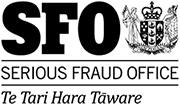A woman has been sentenced in the Manukau District Court today for a fraud she committed against her long-term employer.
A woman has been sentenced in the Manukau District Court today for a fraud she committed against her long-term employer.
Teremoana Kimiangatau pleaded guilty in July this year to committing fraud against Auckland International Airport Limited to the value of approximately $1.8 million. She faced three representative charges of ‘Obtaining by deception' and has received a sentence of three years and two months' imprisonment.
Mrs Kimiangatau had worked at the Auckland International Airport for 18 years.
The Serious Fraud Office (SFO) investigation into Mrs Kimiangatau found that she had transferred funds from the Auckland International Airport Limited bank account to her own account. She had facilitated this by changing client bank account numbers to her own within the airport's accounting system.
His Honour Judge Bergseng described Ms Kimiangatau's offending as "a serious breach of trust".
SFO Director, Julie Read, "After many years of honest employment, Mrs Kimiangatau let both herself and her employer down by committing this crime. In a position to see weaknesses in the system, she chose to take advantage of them rather than to see that they were remedied. There is no excuse for that. All employees have a responsibility to ensure that processes are thorough and adhered to."
Auckland International Airport Limited referred the matter to the SFO in February 2016.
ENDS
For further media information
Andrea Linton
Serious Fraud Office
027 705 4550
Note to editors
Background to investigation
Teremoana Kimiangatau was employed by Auckland International Airport Limited for 18 years in the role of accounts clerk. Mrs Kimiangatau was dismissed from this role in February 2016.
Crimes Act offences
Section 240 Obtaining by deception or causing loss by deception
(1) Every one is guilty of obtaining by deception or causing loss by deception who, by any deception and without claim of right,-
(a) obtains ownership or possession of, or control over, any property, or any privilege, service, pecuniary advantage, benefit, or valuable consideration, directly or indirectly; or
(b) in incurring any debt or liability, obtains credit; or
(c) induces or causes any other person to deliver over, execute, make, accept, endorse, destroy, or alter any document or thing capable of being used to derive a pecuniary advantage; or
(d) causes loss to any other person.
(1A) Every person is liable to imprisonment for a term not exceeding 3 years who, without reasonable excuse, sells, transfers, or otherwise makes available any document or thing capable of being used to derive a pecuniary advantage knowing that, by deception and without claim of right, the document or thing was, or was caused to be, delivered, executed, made, accepted, endorsed, or altered.
(2) In this section, deception means-
(a) a false representation, whether oral, documentary, or by conduct, where the person making the representation intends to deceive any other person and-
(i) knows that it is false in a material particular; or
(ii) is reckless as to whether it is false in a material particular; or
(b) an omission to disclose a material particular, with intent to deceive any person, in circumstances where there is a duty to disclose it; or
(c) a fraudulent device, trick, or stratagem used with intent to deceive any person.
About the SFO
The SFO was established in 1990 under the Serious Fraud Office Act in response to the collapse of financial markets in New Zealand at that time.
The SFO's role is the detection, investigation and prosecution of serious or complex financial crime. The SFO's focus is on investigating and prosecuting criminal cases that will have a real effect on:
- business and investor confidence in our financial markets and economy
- public confidence in our justice system and public service
- New Zealand's international business reputation.
The SFO operates three operational teams; the Evaluation and Intelligence team along with two investigative teams.
The SFO operates under two sets of investigative powers.
Part 1 of the SFO Act provides that it may act where the Director "has reason to suspect that an investigation into the affairs of any person may disclose serious or complex fraud."
Part 2 of the SFO Act provides the SFO with more extensive powers where: "...the Director has reasonable grounds to believe that an offence involving serious or complex fraud may have been committed..."
In considering whether a matter involves serious or complex fraud, the Director may, among other things, have regard to:
- the suspected nature and consequences of the fraud and/or;
- the suspected scale of the fraud and/or;
- the legal, factual and evidential complexity of the matter and/or;
- any relevant public interest considerations.
The SFO's Annual Report 2016 sets out its achievements for the past year, while the Statement of Intent 2014-2018 sets out the SFO's strategic goals and performance standards. Both are available online at www.sfo.govt.nz(external link)

